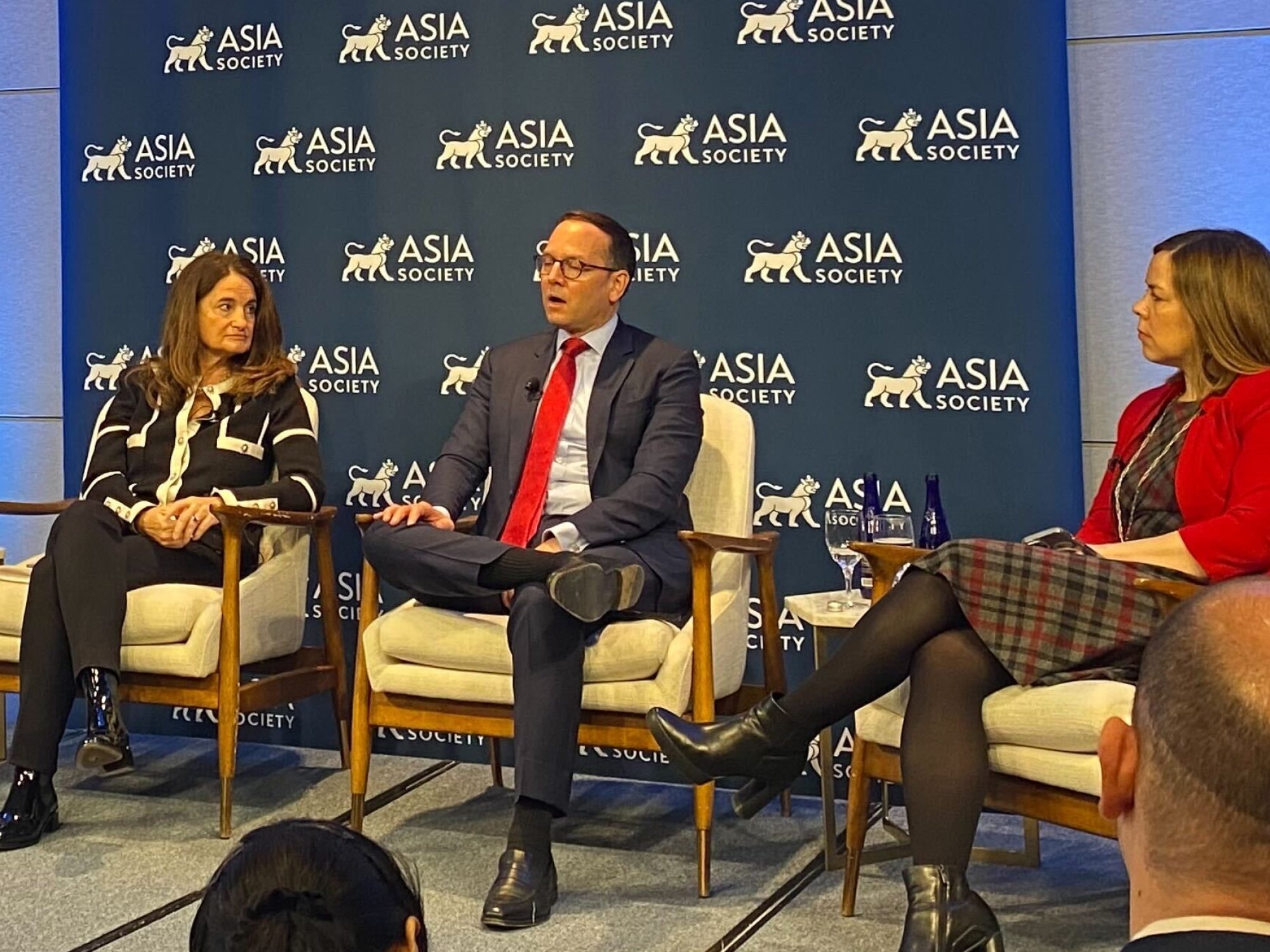A more centralised power structure in China and political changes in the US that have put concerns about Beijing at the centre of national discourse will make it difficult for Chinese President Xi Jinping and his American counterpart Joe Biden to carry out the agreements they reached last month, a leading China analyst has concluded.
Changes in China’s domestic politics “create and sustain incentives to see the United States as a long-term strategic and ideological adversary”, Evan Medeiros, a senior fellow on foreign policy at the Centre for China Analysis, said in a new report.
Published on Thursday by the Asia Society, Medeiros’s report – “The New Domestic Politics of US-China Relations” – found “implications of the changes in Chinese politics for US-China relations are substantial and accumulating”. As a result, he said, China seeks to minimise cooperation and coordination with the US.
“This is even true when immediate economic and political needs require tactical diplomatic adjustments such as following the November 2023 summit,” he said, referring to the Xi-Biden meeting at the sidelines of the Apec forum in California.

Medeiros served for six years on the National Security Council during the Obama administration, first as director for China, Taiwan, and Mongolia, then as senior director for Asia.
Speaking to the Asia Society Policy Institute at the release of the report, Medeiros said the US-China relationship is entering a very challenging period, partly driven by the domestic political forces in both nations that are raising tensions and pushing the two countries apart.
“Domestic politics will be just as important, if not more important, than geopolitics in influencing America’s China policy, China’s American policy and the resulting dynamics,” he said.
In China, Medeiros contends in the report, Xi “has created a political system that leaves little room for negotiation with Washington without his explicit approval and direct involvement”.
Xi’s new top-level policy priorities – national security and self-sufficiency – directly imply reduced connectivity with the United States
“He has similarly created a political climate that preferences resistance against US policy and offers limited incentives for policymakers to work with their US counterparts, raising questions about the durability of periods such as today,” Medeiros writes.
“Xi’s new top-level policy priorities – national security and self-sufficiency – directly imply reduced connectivity with the United States and accentuate competition with it in other regions.”
The report also noted that China is being used in the US as a tool to help advance specific political interests.
3 more Chinese companies added to US import ban over Uygur forced labour
3 more Chinese companies added to US import ban over Uygur forced labour
Medeiros characterised Congress – which has always played a role in foreign affairs, though secondary to the president – as a “new locus of policymaking on China”.
“Congress is now a central actor in almost all aspects of America’s China policymaking, using both its legislative and oversight roles in new and different ways that directly affect US-China political, economic, diplomatic, and security affairs,” the report said.
Risch challenged Campbell about leading the White House’s push to resume direct military-to-military talks with China, arguing that such dialogues were counterproductive.
“The recent focus at the Apec summit on establishing working groups with China allows them to weaponise against us,” Risch said.
The bill also commits the administration to consult Congress for future agreements under the initiative with the law.
Final Pentagon bill features Taiwan, Aukus and counters to China’s influence
Final Pentagon bill features Taiwan, Aukus and counters to China’s influence
Analysts said that the bill was less about economic engagement with Taiwan than it was about asserting congressional authority over trade policy.
At the time Biden released a statement expressing some concern about the law. In cases where certain requirements “would impermissibly infringe upon my constitutional authority to negotiate with a foreign partner, my administration will treat them as non-binding”, he said.
The panel’s chairman, Representative Mike McCaul, Republican of Texas, called the artificial intelligence legislation “the strongest ‘countering China’ bill ever”.
“The time now calls for bold new ideas instead of old failed approaches.”
Joe Biden impeachment inquiry set for US House vote next week
Joe Biden impeachment inquiry set for US House vote next week
Elizabeth Economy, who served as senior China adviser for US Commerce Secretary Gina Raimondo from 2021 to 2023, said the Medeiros report helped explain why US-China relations are moving in the direction they are and “becoming more complex and more oppositional in many respects”.
“I feel almost as though we’re back at square one in terms of like reweaving the fabric of this relationship. It’s kind of astonishing,” said Economy, now a senior fellow at the Hoover Institution.
Economy said it was essential to resume student exchanges, with Americans studying in China and vice versa: “We need to get back to a place where that kind of exchange is welcomed, and where the people travelling feels safe.”



